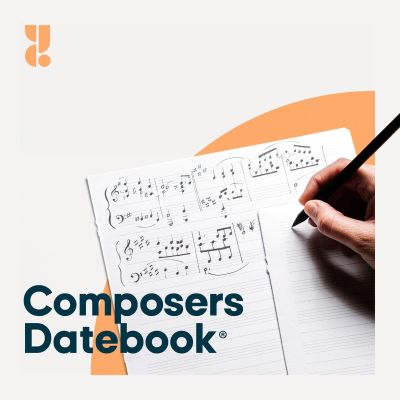Composers Datebook™ is a daily two-minute program designed to inform, engage, and entertain listeners with timely information about composers of the past and present. Each program notes significant or intriguing musical events involving composers of the past and present, with appropriate and accessible music related to each.
Diamond's Elegy
Despite its relation to both the physics of sound and pure mathematics, music, for most people—including composers—is essentially an emotional language. Despite its abstract sound, that’s the case of this orchestral piece, which premiered in Rochester, New York, on today’s date in 1938. The music was by a then 22-year-old American composer named David Diamond, and bears the title: “Elegy in Memory of Ravel.” Nine years earlier, as a precocious adolescent, Diamond had met Ravel during the French composer’s American tour of 1928. Ravel was impressed with the lad’s talent, and encouraged Diamond to pursue a career in music, as did George Gershwin who served on a jury that awarded one of Diamond’s works first prize. Diamond lost both these important mentors in 1937, with the sudden deaths of first Gershwin, then Ravel. The day after learning of Ravel’s death, Diamond began work on his “Elegy.” “It is an expression of terrible loss,” recalled Diamond in an interview many decades later. “As the piece began to take shape, almost unconsciously, I heard it as a ritual—an elegy, but a ritualistic one. I asked that there be no applause at the end.” The work’s 1938 premiere performance was conducted by Howard Hanson, then the head of the Eastman School of Music and the conductor of its famous orchestra. Diamond’s modern, frankly dissonant idiom didn’t sit well with Hanson’s more conservative tastes. Diamond recalled Hanson asking “David, why do you have to write such modern music?” Even so, Hanson respected both Diamond and his music enough to conduct the new piece.
